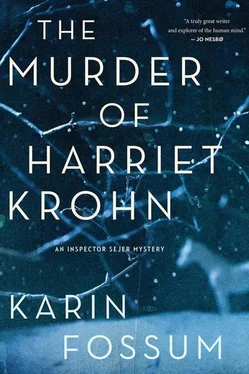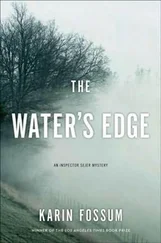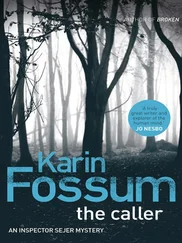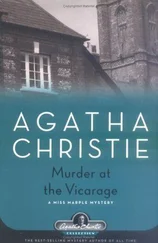He drives slowly down Blomsgate. In his head, he’s conducting an imaginary conversation with Lind, when he does finally answer his mobile.
Hi, there. This is Charlo. Long time no see.
Silence at the other end. Then irritated grunts and presumably rising suspicion.
What the hell are you ringing me for? You don’t think I’ll give you some more, do you? You’ve got some cheek!
That familiar grouchy voice. Cold and reluctant.
Calm down, Bjørnar, this could be to your advantage.
Silence again. Lind is waiting. Charlo savors the moment, milks it. Perhaps he stands there with the roll of money in his hand, tapping the tabletop with it.
Well then, let’s hear it. I haven’t got all day.
Two hundred thousand in nice, clean crispies are here waiting for you. Come and get them. By all means, bring your pruning shears if you don’t believe me.
Lind says nothing. The silence is charged with distrust.
And how have you managed that?
Charlo considers carefully.
Imagination, tenacity, and courage.
He returns to himself again and watches for traffic from his right. He recalls how he almost fainted in the bathroom; that’s never happened to him before. A sudden flickering in front of the eyes, a sensation of vanishing. Guilt. No, don’t think about guilt, think about nice things. About Julie, who’s young and healthy. He’d never have believed that Inga Lill could die of cancer. She was always so bright, so lively. Even now it’s incomprehensible to him. The day she got the diagnosis, it was as if they’d both been struck by lightning. The car’s a bit too hot, so he switches off the fan. He stares straight ahead at the snow-covered road. Don’t give your thoughts free rein. Collect them, take control of them, he thinks, trying to concentrate. It’s hard. Because Harriet Krohn is dead. He scratches his jaw and tries to think. It’s a hundred to one that she’s dead. She can’t turn him in.
There’s the brewery. Great stacks of red and yellow beer crates stand like high-rise buildings around the yard in front of the building, resembling oversized Lego blocks. To be a child again and be able to play with a clear conscience, protected by adults. He loses himself in childhood reminiscences and remembers a particular day when he was walking back from school. It was winter and icy cold. The snow creaked under his boots. Just then he caught sight of something in a pile of snow close to his front door. A cat that had been run over. The cat was virtually turned inside out; its intestines were partly splayed out on the snow. It made him almost ecstatic, and inquisitive. He knew that his mother could see him from the window, but he couldn’t help himself. He began prodding around the cat’s innards with a stick. It didn’t move, so he could prod as much as he liked. The cat was at peace. He was only seven, but he understood that much, and the stick worked frenetically among all the entrails. He couldn’t get enough of it. After a few minutes, his mother came out and wanted to know what he was doing. From her reaction, he concluded that what he’d been doing was inexcusable. But he didn’t think the cat was nasty. He was deeply fascinated. Pondering it now, he wonders if perhaps he’s different — if other, normal children would have run away in disgust. Where did he get the idea of picking at the dead animal’s remains? He thinks there’s a meaning to everything, so he analyzes past events and searches for a flaw. If, that is, he has a flaw. No, he can’t think of anything. He feels totally normal. Here’s old Charlo. I’m perfectly normal, but I’ve killed.
He drives along the main road and the houses get farther apart. That car behind me, he thinks as he looks in the mirror, has been there a long time. A Renault. There’s a man at the wheel. Is he after me? Charlo can’t get himself to relax. He feels exposed in the sharp winter light, feels the car is making more noise than usual. He thinks all manner of strange things. It feels almost as if his cheeks are on fire. Nevertheless it’s a relief to be out among people, to be a natural part of the flow. Here, among the crowd, both good and bad, he feels anonymous. Gradually the farms and apple orchards appear. He likes the landscape around here: the fields and spruce forests, the gently sloping wooded hills and the mountains. He likes the heavily pruned apple trees, decorative as Japanese letters in the bright snow. In May they will stand like buxom bridesmaids in white and pink. He glances at his watch, turns on the radio, and listens. Maybe Harriet has been found by now. Maybe someone has entered the house and a scream has pierced the stillness in the kitchen. He continually checks his mirror. He sees his own black pupils and thinks they’ve turned into slits now, like a goat’s. No, he’s imagining it; his imagination is playing tricks on him. He’s under stress, after all. It’s hardly surprising that he sees Japanese characters in the snow or hears his own voice in his head.
Do you realize what you’ve done?
He grips the little knob on the gearstick, sits leaning forward, and drives. Here’s the familiar fanfare that signals it’s time for the news, so he pulls off onto the shoulder and stops. Chechen rebels have been caught on the Russian border, a suicide bomber has struck in Israel, flu vaccine has arrived. Nothing about the murder of Harriet Krohn. He bangs the steering wheel and turns the car back onto the road. He’s frustrated almost to the point of despair. He wants to get it over with, the noise, the furor. Theoretically she could lie there for days. They won’t find anything, he thinks. I haven’t left any traces. I was quick and pretty single-minded, even though I was agitated. He dwells on all the people who’ll trample through her house — skilled, experienced people with limitless expertise. What sort of tiny fibers could he have carried in with him? Maybe one of his hairs fell out. Will they see his footprint in the blood and the pattern of his soles? He tries to breathe calmly. He’s feeling hungry so he begins to look for a kiosk or gas station where he can get something to eat.
Five minutes later, he halts at a Shell station. He sits in the car for a while, hardly daring to go in. He runs his fingers through his hair and squints furtively through the windshield; he can’t see anyone. But at the end of the building he spies a large, green container. A dumpster. He reaches down and picks up the bag of bloody clothes. Then he grits his teeth, leaves the car, and walks as coolly as he can to the dumpster, which has a lid. He looks over his shoulder, puts the bag in, covers it as best he can, and bangs the lid shut. Then he goes into the shop. He wanders across to the counter and sees some large hot dogs browning on an electric grill. He chooses one with bacon and squeezes plenty of mustard on top. The young man who’s serving watches him as he eats. He moves away, stops in front of the magazine rack, and reads all the headlines. The crisply cooked skin crunches between his teeth, and the mustard burns his tongue. He drinks half a bottle of Coke, says goodbye, and goes out again. The food does him good. Gradually he relaxes. He drives on, studying the road signs and the traffic in his rearview mirror. There’s a green Scorpio behind him. For all he knows, the car might have plainclothes police in it. He doesn’t seriously think it does. He’s only considering the possibility that they’re all over the place, that they’re looking for him, that they won’t give up.
After half an hour, he turns left at Møller’s Riding Center. He finds himself on a narrow, bumpy forest track and shifts down into second, trying to drive carefully to spare the Honda. Soon he catches sight of the paddocks. Several horses are grazing the damp, half-frozen grass. Small patches of snow are lying here and there; it’s still mild for November and the air is pleasant and clear. He sees low red-painted buildings, the riding ring, the stables, the parked cars and horseboxes. The place is idyllic, lying in a hollow in the landscape like so many toy blocks in a bowl, surrounded by gently undulating hills and forest. He glides into a free parking space. He needs to sit in the car for a bit first. It’s still early in the day. Only a couple of young girls are leading their horses for a ride across the fields. They’ll plow through the flecks of snow together, screaming with pleasure. Again he thinks of Julie. He thinks of her with longing and hope, and dreams of what the future may hold. The girls don’t even glance at him. He stays in the car. He watches the horses’ rumps and their flicking tails, and soon they’re out of sight. Diffidently he gets out of the car and stands for a while looking around. Now he’s there for all to see in his blue quilted jacket. But no one pays him any attention. He walks to the first stable. Opens the heavy door and stands there listening to the noises within. He breathes in the strong tang of the animals. He hears the soft sound of horses chewing, a rhythmic munching. He recognizes the heady scent of dry hay, leather, and horse muck. On his right is a bulletin board. He reads the messages and smiles.
Читать дальше












